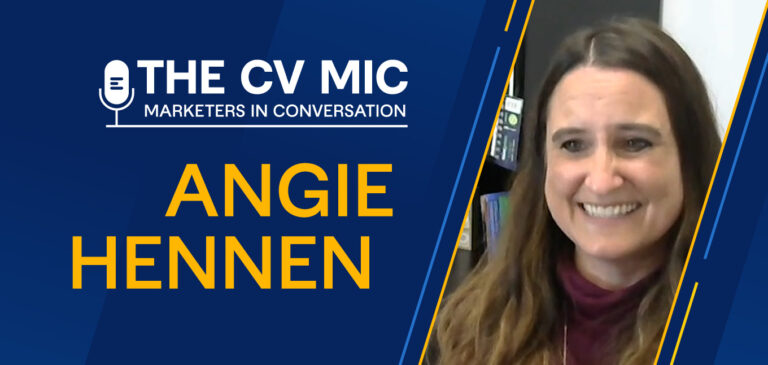Freelancing after 50 has its own unique challenges and opportunities. Here’s why boomers are choosing to freelance, 10 ways they can ensure successful careers, and what content strategists and editors must do to battle ageism.
The number of freelancers in the U.S. is now 57 million — up from 53 million in 2014. More people are turning to freelance work as a second-act career, and close to 40 percent (37 percent) of freelance workers are over 55, according to the Economic Policy Institute (EPI), as reported by AARP. The number of older freelancers is on the upswing. The share of freelancers age 55 to 64 rose from 18.8 percent in 2005 and 22.9 percent in 2017, with people continuing to work independently past the age of 65.
Life expectancy continues to grow and is now 72.6 worldwide, according to the United Nations. Many people will have multiple careers throughout their lifetimes. Boomers hold about a dozen jobs during their working years.
The “side hustle” is common today too, and people over 50 are hustling hard. Most boomers with side gigs are completing more projects each week than their millennial counterparts.
An Older Population Gravitates to Freelance Work
We all have different reasons for pursuing freelance careers later in life.
According to Digital Information World, here’s the breakdown:
- Forty-three percent are ready to be their own boss. Freelancing can be challenging, but setting your own hours, choosing appealing assignments, and working on a variety of diverse projects with different people is liberating.
- Pursuing a passion is the motivation for 42 percent. Many people choose their careers in their 20’s and 30’s, based on financial motivations, peer pressures, or simply lack of career direction and guidance. When you hit the second half of your life, you may choose to do something you always loved but put on the back burner.
- Close to a quarter of freelancers (22 percent) were unhappy in their jobs. In your lifetime, you’ll likely work more than 90,000 hours. As you age and begin to reflect on your past and future, you may have less of a tolerance for misery or boredom.
- Outsourcing and downsizing were responsible for 15 percent of the reason why people opted for freelance life. Staff writers and editors at conventional and digital media have lost jobs and look to apply their skills in the digital world, freelancing for a variety of outlets. In fact, close to 8K media jobs were eliminated just in 2019 due to cutbacks and consolidations. Sadly, many professionals are aging-out of corporate life. More than half of older Americans are being let go before they are ready to retire. Some lack the skills they need to find new jobs, and others are simply victims of ageism. Unable to find traditional employment, some choose to freelance or start entrepreneurial ventures.
Freelancing After 50 Offers Unique Opportunities and Challenges
“My best ideas are ahead of me.” — Jack Goldenberg, 72-year-old freelancer
Many people choose to freelance following corporate careers or after raising families because it affords them a level of control and flexibility that they may not have been able to enjoy when they were younger.
Also, baby boomers are opting not to retire and are looking for ways to remain active. According to the Economist, “By continuing to work, and staying socially engaged, the boomers, in their new guise as the young old (yold), will change the world, as they have done several times before at different stages of their lives.”
Is ageism a reality?
According to Goldenberg, finding work after 50 has proven more complicated in recent years. In part, this may be due to the sheer number of people seeking freelance work and the willingness of younger people to accept lower fees to gain experience. Older people are under more pressure than ever to remain relevant and prove to hiring managers (who are often younger) that they are not past their prime.
The AARP confirms that discrimination due to age exists, with “nearly one in four workers age 45 and older have been subjected to negative comments about their age from supervisors or coworkers.” The average editor’s age is 42, so freelancers over 50 are likely to be supervised by people a decade younger than they are.
Diversity and inclusion don’t just apply to gender, race, and sexual orientation. Creating a work team with varying ages and experiences can add fresh thinking to an organization, a content series, and a brand or a business. Diverse organizations have been proven to deliver better financial performance because they are able to see the world from a broader range of perspectives.
What Freelancers Over 50 Can Contribute
Although you should always be evaluated based on your skills and relevant experience and generalizing about any generation is discriminatory, some older freelancers bring these unique skills to their assignments.
- Varied expertise. For example, 51-year-old freelancer Robert Wheat has worked as a journalist, a publicist, and as a writer for both Fortune 1000 corporations and small businesses. Many people who have had careers spanning 30 years are bound to work on a range of challenges, products, and services. At 64, I have an extensive marketing background and apply my knowledge of sales and business development to writing projects, focusing on business outcomes and quality lead generation.
- Research superpowers. We (boomers) grew up with book indexes and library card catalogs. Knowing how to find and use obscure information is a strong suit for many older freelancers. In addition, the networks we have amassed over the years can provide a great source of subject matter experts.
- Speed and calm under pressure. Despite a common perception that people may slow down as they age, skills like research, creativity, and writing can speed-up. One scientific study even shows that your right and left brain communicate more effectively as you age. Aging also equips many professionals to deal with the unexpected.
- Flexibility. Free from the responsibilities of young children and household management, some older workers sometimes have scheduling independence. Employers or hiring managers may assume that because someone older has extensive experience, they may be too expensive to hire. The reality is that some people over 55 have already planned for retirement and health insurance and may trade compensation for freedom. The bottom line is that when dealing with any generation, never assume or stereotype.
How Freelancers Over 50 Can Remain Competitive
Technology will continue to change the skills required for a successful freelance career — at any age. Because boomers grew up in an analog era, they need to upskill to meet the basic needs of current media quickly.
Although generalists may have a broader choice of assignments, focusing on a few in-demand areas can help ensure you get steady work. If you’re leaving a corporate role to embark on a freelance career, consider those industries and topics you know well. Showcase your expertise to prospective clients. Don’t allow your age to impact your self-confidence. Remember, Grandma Moses didn’t become a successful artist until after she turned 78.
If you are starting or scaling-up your freelance career after 50, here are 10 essentials.
- Become proficient in using a range of digital platforms. Learn the basics of WordPress and other standard CMS and blogging systems.
- Upskilling one’s vocabulary is essential. If you don’t understand some of the terms being used frequently by editors or project managers, Google them.
- Speaking of vocabulary, adopt an automated editor. Tools like Grammarly and Hemingway now fulfill the role once played by your high school English teacher. Before you submit writing projects, let these automated sherpas point out areas for improvement — way beyond spelling corrections. Grammarly even provides regular “grades” on the quality of your writing so that you can set goals for development.
- Take classes — in real life or online. Continuous learning will not only keep you engaged, but it may also give you a leg up when bidding against other freelancers being considered for a particular engagement.
- Read voraciously about how other freelancers succeed and follow their tips. Attend relevant conferences related to your field of expertise. Never stop learning and meeting people who could turn into prospective clients or influencers.
- Find and learn from a tribe. Join social media groups of freelancers, and don’t be afraid to ask questions. Several Facebook groups are specifically geared to freelancers over 50 and they support each other by sharing their “friends'” posts on social media, referring each other for assignments, and reaching out for sources for content. The freelance community can be collaborative if you choose your connections wisely. Writing from coworking spaces where different generations gather can also expand your world view.
- Stay on top of digital media and marketing technology trends. Subscribe to e-zines and watch how-to videos. Artificial intelligence will ultimately have an impact on content generation. People over 50 have already lived through automation evolutions — from a manual typewriter to an electric typewriter to a desktop computer to a tablet or smartphone, for example. One could argue that we (people 50 and older) are as capable as any generation of making the transition to bot-assisted writing. Embrace new technologies and commit to learning them.
- Think visually and get savvy on the basics of formatting, image selection, and management. Many content assignments these days involve both words and images/videos/GIFs. If you are fluent in all, you have a higher chance of landing assignments.
- Find a patient and positive mentor who is adept in those skills you lack and learn from them.
- Give up paper whenever possible. Work scheduling, project management, and communication systems like Slack and Monday are commonplace, as are cloud-based payment systems. Zoom calls and Google Hangouts often replace formal meetings. Avoid admitting ignorance when faced with a new app or communication system. Familiarize yourself with it, turn to others who know how to use it, and commit to becoming proficient. Not only will these automation tools make you more efficient, but you’ll also be contributing to helping eliminate paper waste.
Once you’ve established yourself as a successful working freelancer, proudly display your work and skills on LinkedIn and other social channels, on your Clearvoice portfolio, and a branded website. Potential clients need to be able to find and assess your range of work quickly. Enter contests and, if you win, display your credits proudly. Smart prospective clients will evaluate your work quality without regard to how many times you’ve traveled around the sun.
Become a Cross-Generational Collaborator and Advocate
In addition to mastering the necessary skills detailed above, freelancers over 50 must become comfortable working with (and even being supervised by) people half their age.
According to Inc.com, this year (2020), millennials — born between about 1980 and 2000 — will comprise half of the American workforce, and by 2025, 75 percent of the global workforce.
Fast Company, in an article about fostering collaboration and communication among the five generations now in the workplace, says:
“Each generation tends to believe its way of doing things is the best way. When this happens, cultural clashes invariably hamper operational efficiency.”
Whether you are the 60-something freelancer or the 20-something editor (or vice versa), become aware of your own beliefs and biases. Continuously ask yourself, “What does this person know that I don’t?” and respect others for their skills and unique perspectives — looking beyond the date on their driver’s license.
If you’re over 50, avoid the temptation to talk down to younger coworkers or treat them as your kids. If you’re under 50, don’t assume that we’re all technology-challenged and out-of-touch. Listening and respect should transcend generations.
Groups like CIRKEL and campaigns like one launched by the World Health Organization (WHO) were launched to facilitate conversations about age bias and encourage generations to work together without prejudice and frustration. Something as basic as examining the words we use to describe people over 50 can be a critical step toward eliminating age discrimination. After all, as writers, we should be especially in-tune with the power of language.
If you’re a content strategist or editor looking for new talent, examine your preconceptions and biases and work to overcome them. The next award-winning lead-generating writer could be 16 or 96. Compelling concepts and words transcend generations!
Want a leg up?
Getting started freelancing is tough at any age. But at ClearVoice, we value skills and experience. Think about joining our Talent Network if you want to watch your career soar to the next level.






